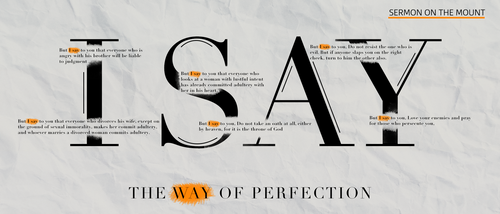Righteousness of the Heart (Day 4)

Building Fences, Guarding Hearts
"My family lives on a busy road. But we have a fence around our property. The fence doesn't make the cars disappear, but it protects what matters inside."
1 Corinthians 6:18 (ESV)
"Flee from sexual immorality. All other sins a person commits are outside the body, but whoever sins sexually, sins against their own body."
Devotional Thought
The ancient Jewish concept of "building a fence around the Torah" gives us a profound insight for us today. Rabbis would create additional rules—not because God's commands were insufficient, but because human nature is weak. If the Torah prohibited work on the Sabbath, they'd define what constituted "work" and then add extra restrictions to ensure no one accidentally violated the actual command.
Critics sometimes dismiss this as legalism, but there's spiritual wisdom here that Jesus Himself employed. When He taught us to pray "lead us not into temptation," He was advocating for proactive protection, not just reactive resistance.
Proverbs 4:23 (ESV) "Keep your heart with all vigilance, for from it flow the springs of life."
The Hebrew word for "keep" in Proverbs 4:23 (natsar) was used to describe guarding a vineyard or watching over a city. Ancient cities didn't just have walls—they had watchmen who scanned the horizon for approaching threats. The goal wasn't to live in paranoid isolation but to maintain sufficient awareness to respond before danger arrived.
In today's world this concept is most challenging with our culture's emphasis on unlimited access and constant connectivity. We're told that restrictions equal repression, that boundaries indicate weakness. But Pastor David's fence analogy reveals the opposite truth: boundaries create space for freedom. Children can play safely within a fenced yard precisely because the dangerous traffic is kept out. Can you think of another boundary that was created to protect the human race but wasn't kept? (Like in a garden)
However, we must address a potential misapplication: boundary-setting can become an idol if we believe our external restrictions alone can change our hearts. Pharisees mastered external fences while maintaining corrupt internal desires. The goal isn't behavioral perfection through the control of our environment, but heart transformation that expresses itself in wise choices.
Paul's command to "flee" uses the Greek word pheugo—the same word used for running from physical danger. You don't negotiate with a house fire or try to reason with a charging bear. You run. This isn't spiritual weakness; it's spiritual wisdom.
Critics sometimes dismiss this as legalism, but there's spiritual wisdom here that Jesus Himself employed. When He taught us to pray "lead us not into temptation," He was advocating for proactive protection, not just reactive resistance.
Proverbs 4:23 (ESV) "Keep your heart with all vigilance, for from it flow the springs of life."
The Hebrew word for "keep" in Proverbs 4:23 (natsar) was used to describe guarding a vineyard or watching over a city. Ancient cities didn't just have walls—they had watchmen who scanned the horizon for approaching threats. The goal wasn't to live in paranoid isolation but to maintain sufficient awareness to respond before danger arrived.
In today's world this concept is most challenging with our culture's emphasis on unlimited access and constant connectivity. We're told that restrictions equal repression, that boundaries indicate weakness. But Pastor David's fence analogy reveals the opposite truth: boundaries create space for freedom. Children can play safely within a fenced yard precisely because the dangerous traffic is kept out. Can you think of another boundary that was created to protect the human race but wasn't kept? (Like in a garden)
However, we must address a potential misapplication: boundary-setting can become an idol if we believe our external restrictions alone can change our hearts. Pharisees mastered external fences while maintaining corrupt internal desires. The goal isn't behavioral perfection through the control of our environment, but heart transformation that expresses itself in wise choices.
Paul's command to "flee" uses the Greek word pheugo—the same word used for running from physical danger. You don't negotiate with a house fire or try to reason with a charging bear. You run. This isn't spiritual weakness; it's spiritual wisdom.
Application Questions
- Historical Application: How does the Jewish practice of "fencing the Torah" inform your approach to spiritual boundaries? Where might you need to create "buffer zones" between yourself and specific temptations?
- Modern Tensions: How do you balance the biblical call to create protective boundaries with cultural pressures to remain "open-minded" and fully engaged with contemporary life? What does wise engagement look like?
- Heart vs. Behavior: How can you ensure that your boundary-setting serves heart transformation rather than becoming a substitute for it? What's the difference between healthy restrictions and legalistic rule-making?
Today's Challenge
Identify one specific "fence" you need to build in your life this week. This might be technological (app restrictions, accountability software), relational (honest conversations about boundaries), or environmental (changing routines that create unnecessary temptation). Take one concrete step to establish this boundary today.
Today's Prayer
Father, I thank You for the wisdom of boundaries and the protection they provide. Help me to see restrictions not as limitations on my freedom, but as guardrails that create space for true flourishing. Give me discernment to know where I've been naive about my own vulnerabilities and courage to take practical steps of protection. Keep me from both reckless exposure to temptation and fearful isolation from the world You've called me to engage. Transform my heart so that my boundaries flow from love for You rather than mere self-preservation. When others question my choices or call them extreme, help me remember that You see the hidden battles I fight and the future I'm protecting. Make me wise as a serpent and innocent as a dove. In Jesus' name, Amen.
Posted in Lust

No Comments